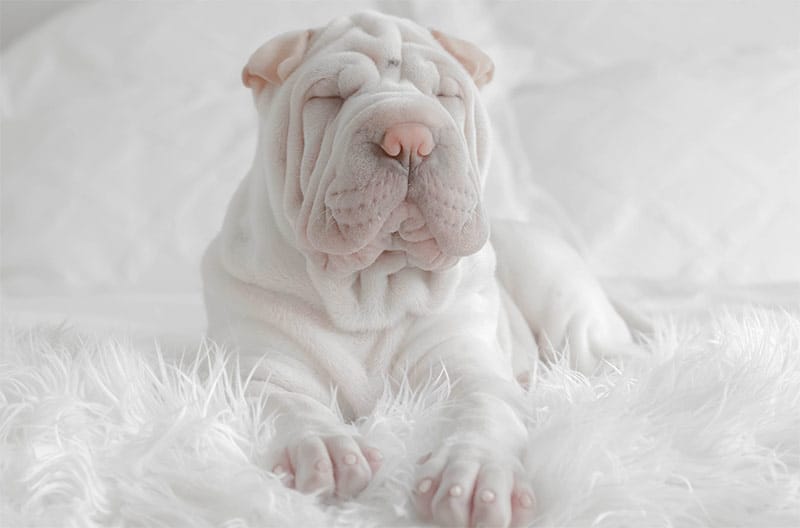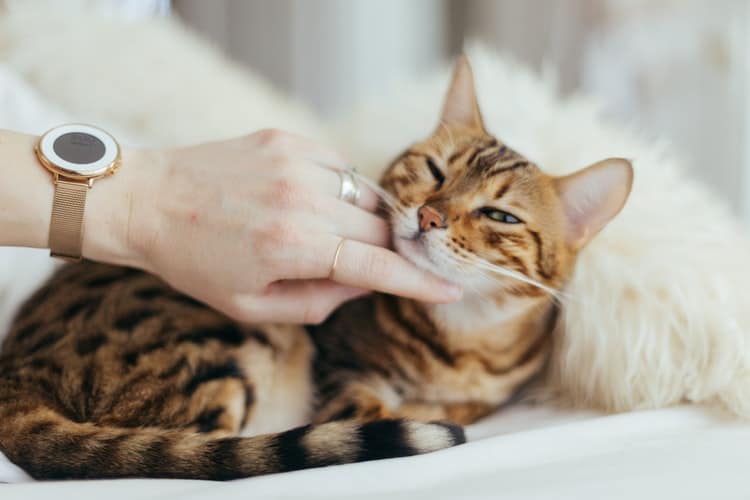Animal Health, Cat, Diseases, Remedies
Cat Coryza: The Best Natural Treatments
CORYZA IN BRIEF
Cat flu, or coryza, is quite similar to the common cold that humans get in terms of symptoms.
It is very common in cats and kittens.
Of viral and/or bacterial origin , it is generally caused by feline herpesvirus (FHV) or feline calicivirus (FCV).
Extremely contagious between cats , coryza is present in saliva, tears and nasal secretions.
Cat flu can be very serious, severe, or even fatal if not treated in time.
Recognizing the symptoms of coryza and knowing how to act accordingly is therefore essential to guarantee the health and well-being of our cats.
Here’s everything you need to know about coryza and the most effective natural remedies.
WHAT ARE THE CAUSES OF CORYZA?
Before presenting the natural treatments for coryza, it is essential to know the disease and its causes as well as recognize the symptoms, in order to act quickly in the event of contamination.
It is estimated that approximately 80% of cases are caused by FHV viruses (acute, chronic or latent) or FCV.
Coryza can also be caused by the bacteria chlamydophila felis or bordetella.
Bordetella infection has a relatively high mortality rate in kittens, debilitated, elderly or otherwise ill cats.
HOW DO CATS GET CORYZA?
Cats with coryza are a major source of infection for healthy cats.
Felines can catch cat flu through oral, nasal, and conjunctival routes.
Coryza is transmitted between cats directly or indirectly.
A cat can therefore catch coryza by licking, scratching or other contact with its fellow cats, but also via a shoe, a basket or even its owner if it has stroked an infected cat.
WHAT ARE THE SYMPTOMS ?
Coryza is manifested by inflammation of the ENT area. Signs may include:
- sneezing
- runny nose / rhinitis
- sore and watery eyes / conjunctivitis / keratitis
- glued purulent eyelids
- loss of appetite
- mouth ulcers
- a cough
- difficulty breathing
- fever
- inflammation of the lymph nodes in the neck
- a lethargy
- a lung infection
Although it can affect cats of any age, it tends to be particularly serious in kittens.
WHAT SHOULD I DO IF I SUSPECT MY CAT HAS CORYZA?
Coryza can be fatal if left untreated, especially in kittens, older cats, and cats with underlying medical conditions.
It is therefore vital to contact your veterinarian immediately if your cat or kitten shows signs of the illness.
If not caught in time, coryza can lead to blindness or permanently damaged eyes, pneumonia and long-term damage to the nasal passages and sinuses.
+Veterinarian’s advice: “Do not attempt to treat and cure your cat using natural treatments without first consulting a veterinarian and making the correct diagnosis of your pet’s problem.”
WHAT WILL THE VET DO IF MY CAT HAS CORYZA?
Once you see your veterinarian, they should be able to give you a tentative diagnosis based on your cat’s symptoms.
But to make a definitive diagnosis, he or she may need to take blood samples as well as swabs from your cat’s nose or mouth to send to a lab for testing.
At this stage, the virus or bacteria can be isolated and identified.
Unfortunately, diagnosis can be more complicated if your cat has more than one infection.
Once the diagnosis has been made, your veterinarian will put in place an anti-inflammatory , anti-viral and sometimes antibiotic treatment in order to combat potential bacterial superinfections.
In case of rhinitis, it may also be necessary to prescribe inhalations to your cat.
Other treatments may include antihistamines, nose drops, and eye ointment. These should help clear discharge from your cat’s nose, eyes, and mouth, which can make it difficult for him to eat and drink, leading to dehydration.
It should be kept in mind that cats with mild symptoms are rarely hospitalized due to the risk to other cats, so care is usually carried out at home.
Also note that antibiotics will not stop feline herpes virus or calicivirus, so they will only be prescribed if your cat has a bacterial infection.
Your cat will need emergency treatment if their symptoms are more severe or if they have developed pneumonia. In cases like this, treatment may involve giving them oxygen to help them breathe and a drip.
IS IT POSSIBLE TO PREVENT CORYZA?
-
Isolation
If you have several cats and one of them has coryza, it is important to isolate him so that he does not contaminate the other felines in the house.
Also, remember to apply hydroalcoholic gel to yourself each time you handle something to avoid contamination.
-
The vaccination
The coryza vaccine is given in 2 injections with a 1-month interval, and a booster every year.
It is active against caliciviruses and rhinotracheitis , and is increasingly being combined with a vaccine against Chlamydia, bacteria that cause certain complications.
Our advice is to vaccinate your kitten against the disease as early as possible as this is the most effective way to reduce the risk of it spreading. Cats can be vaccinated as soon as they are weaned (from eight weeks).
There are also vaccines against bacterial forms of the disease, although they are not usually given routinely.
Be aware that cat flu vaccines are not always 100% effective and even vaccinated cats can become carriers of the disease without showing symptoms. This puts them at risk of infecting other cats.
-
Natural treatments
Natural treatments, such as food supplements to strengthen the immune system, can also prevent coryza, in the sense that a stronger and healthier body will be better able to fight the attacks it has to face.
On the other hand, a weakened system will always be more likely to fall ill because it will have fewer means to defend itself.
CBD is one of these natural solutions that can strengthen the immune system. It is found in particular in the form of CBD-based dog treats .
Coconut oil is also beneficial due to its antioxidant, antibacterial and anti-infectious properties, which work in favor of the immune system.
To combine the benefits of CBD and coconut oil, Botaneo has created a natural spray based on these two ingredients. A true natural remedy, it strengthens the immune system of cats to help them fight external aggressions.
-
Healthy lifestyle
Along the same lines, a healthy lifestyle with an appropriate diet and a healthy, stress-free lifestyle will help your cat to be stronger and therefore make it less vulnerable to various viruses and illnesses.
CAN MY CAT BE CURED OF CORYZA?
Cats that have contracted the feline herpes virus typically show symptoms for 5 to 10 days in milder cases and up to six weeks in more severe cases.
Cats with the herpes virus may suffer from ongoing health problems and are also more susceptible to secondary bacterial infections. It should be noted that cats with FHV are infected for life.
Respiratory disease caused by feline calicivirus is generally milder than the feline herpes form of the disease. However, there are many strains of calicivirus, and some are more serious than others. In some cases, cats may show little or no signs while in others, they may develop pneumonia and painful mouth ulcers.
Unlike FHV, cats diagnosed with FCV are usually able to naturally clear the infection within weeks or months.
ARE THERE ANY NATURAL REMEDIES FOR CORYZA?
Some medications such as anti-inflammatories can cause many side effects in cats, sometimes serious and harmful to your pet’s health.
With this in mind, more and more cat parents are turning to alternative medicines and natural solutions to relieve their companions of the symptoms of Coryza.
If your cat is showing signs of a cold or has been diagnosed with cat flu, there are natural remedies available to combat some of the symptoms (alongside a visit to the vet).
-
Stock up on vitamins
Strengthen and boost your cat’s immune defenses using vitamins.
In particular, you can boost its immune defenses and help your cat fight the disease by supplementing its diet with: antioxidants, vitamin E, vitamin C, etc.
+Vet’s advice: “Vitamins offer a wealth of benefits to cats. They are ideal natural solutions in case of lack of tone, deficiencies or hair problems. B vitamins, for example, are essential for good health of the muscles, skin, nervous system and immune system. But be careful! It is always recommended to seek advice from your veterinarian before adding a food supplement or any food to your feline’s diet.”
-
Buy Krill Oil
Krill oil is a dietary supplement that can be very useful for a cat suffering from coryza.
Supplement of oceanic origin (krill is a small shrimp), rich in omega 3, it will contribute to the general well-being of your feline.
Moreover, it is known to relieve inflammation, improve the appearance of cats’ skin and coat, as well as help maintain heart and brain function.
In short, it is a real natural ally for your cat, whether it has coryza… or not.
This food supplement can be found in pet stores or on specialized websites.
-
Use hemp extract
CBD from hemp is also known to be an excellent natural anti-inflammatory. It is also known to promote appetite and energy, reduce pain and regulate sleep.
CBD can therefore prove to be an ally of choice for naturally combating the symptoms of coryza.
-
Give taurine
Taurine can also be a good natural treatment for cats suffering from coryza.
It is in fact an essential amino acid for cats, derived from animal proteins.
If your cat has not eaten or has eaten very little since becoming ill, he may be suffering from a taurine deficiency which can itself cause retinal damage, dilated cardiomyopathy and/or reproductive problems.
Supplementing your cat’s diet with taurine can help to compensate for deficiencies and protect its vision.
-
Try Lutein
Lutein, a pigment from the carotenoid family, is present in certain vegetables such as carrots and also egg yolk.
A natural supplement, it offers antioxidant benefits and will help your cat’s body limit the impact of free radicals.
+Vet’s advice: “In addition to helping your cat fight disease, this natural remedy also helps prevent age-related eye disorders.”
-
Bet on anti-flu inhalations
In 2 liters of boiling water, mix essential oil of eucalyptus, niaouli, green myrtle and menthol alcohol.
If your cat does not want to breathe the mixture, let it diffuse in an enclosed area where your cat likes to stay.
-
Help your cat regain its appetite
Sick cats have difficulty eating. This may be because they cannot smell the food or it is difficult to swallow.
Warm his food slightly and add soft, strong-smelling foods like fish or liver.
-
Keep it warm
Cover your cat and increase the temperature a little so that he is comfortable. Also close the house so that there are no drafts.
-
Hydrate your cat
Dehydration caused by cat flu is common. Always have water available to your cat so it is always available.
+Vet’s advice: “If your cat is dehydrated and has trouble drinking water, it is essential to find alternatives so that he can hydrate himself sufficiently. To do this, you can add a piece of vegetable or chicken bouillon cube to his traditional water. The little extra taste can indeed make your cat’s water more delicious, and therefore motivate him to drink.”
-
Let him rest
Rest is the key to healing. Let your cat sleep so that he can recover peacefully.


